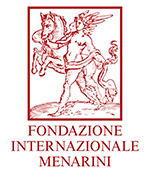
Press release
Heart problems can also be fought with natural substances
Catanzaro, 30 May 2014 - A nutritional or nutroceutic approach, or the addition of certain supplements may have a protective effect for the heart and circulation. Moreover, natural substances could make it possible to reduce the dosage of drugs used by subjects with cardiovascular disorders, helping to decrease the possible side effects of the treatment. These are the key messages launched by the experts who met in Catanzaro for the “New trends in cardiovascular therapy” symposium, organised by the Magna Grecia University of Catanzaro and sponsored by the Fondazione Internazionale Menarini.
"Still today, the therapeutic approach for certain heart conditions, such as heart failure, is in constant evolution. The same issues also surround the treatment of high blood pressure where the use of pharmacological therapies entailing the combination of different antihypertensive drugs has recently been introduced", explains Vincenzo Mollace, professor of pharmacology at the Magna Grecia University of Catanzaro and chairman of the symposium. "This is thanks to the new indications contained in the guidelines of the European Society of Cardiology and the European Society of Hypertension, and about which we are now acquiring important feedback, not only regarding the logistics of using these types of drugs, but also in pharmacoeconomic terms".
The rise in cholesterol, triglycerides, and blood glucose, plus the reduction in the good cholesterol, i.e. Hdl, all increase the risk of cardiovascular disorders, especially ischaemic heart disease. The cardiometabolic risk, that is, the combination of all these conditions, is a risk multiplier compared to the original risk. "Together with their benefits, in some cases the drugs most commonly used for this condition, such as the statins, may also have side effects which call for discontinuation of the treatment without the patient being able to reach the target", continues Mollace. "We have recently observed how a nutritional or nutroceutic approach, or the addition of certain supplements (which have a strong antioxidant effect, and for which there is finally serious scientific documentation) can help achieve acceptable cholesterol levels. While it cannot be denied that the statins are irreplaceable, thanks to the nutritional supplements we are now even able to cut the doses in half, with a longer persistence of therapy and a net improvement in terms of quantitative and qualitative response".
As recently highlighted in a study conducted by Mollace, bergamot stands out among the natural substances that can be used. "The healing properties of bergamot and its derivatives have been known for some time, and include use in cosmetics and as a disinfectant, as well as recent acquisitions in the nutritional field. Less known are the systemic effects of the non-volatile fraction of the essential oil of this citrus fruit, which is rich in pharmacologically active substances", explains Mollace. "In particular, recent studies conducted in our laboratories have demonstrated how the non-volatile fraction of essential bergamot oil has antiproliferative effects on the smooth cells of the blood vessels. These effects can be attributed to the presence of antioxidant substances, and thanks to the presence of bergamotine, a substance with calcium channel-blocker effects, it also has a long-lasting hypotensive effect. As a result, the derivatives of the bergamot play a key role in the sector of possible therapeutic agents of a plant origin. Due to the series of effects that the bergamot extracts have on the cardiovascular system, they offer the potential for use as safe treatment in the field of unconventional remedies for fighting the main cardiovascular diseases such as high blood pressure and vascular disease".